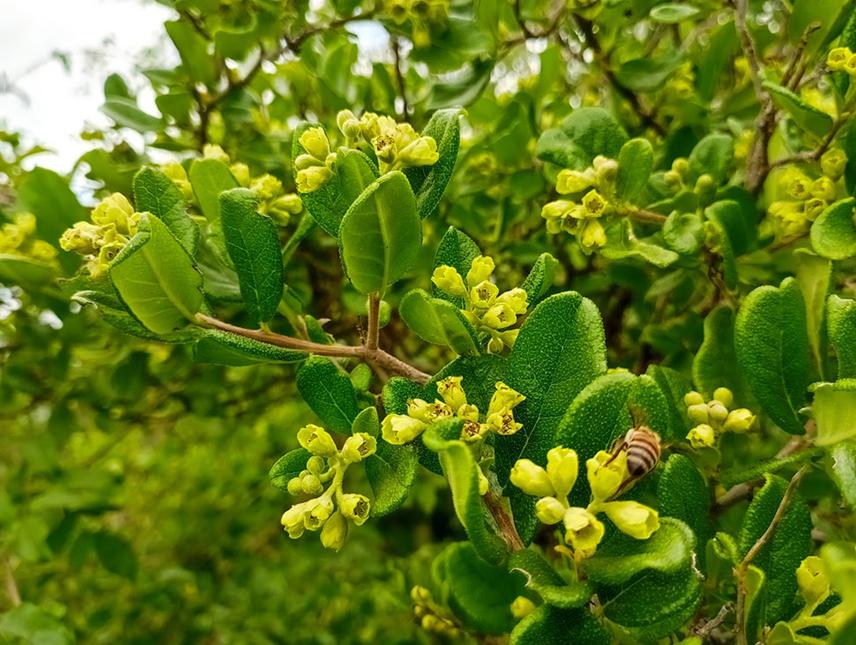Isack Rikohe
Other projects
1 Feb 2022
Assessment of Flowering Plants Diversity in Relation to Honeybees’ Foraging Preferences in Northern Tanzania
Regarding bees' potential to keep the ecosystem healthier and improve livelihood, their conservation is inevitable. The local community has a significant role in ensuring the conservation of bees around their areas; the involvement of the local community in conservation is triggered by awareness and knowledge provided to them. Therefore, the current study aimed to assess local people's awareness of honey-bee plant interaction and the contribution of beekeeping to ecosystem conservation and livelihood improvement.

Foraging bee on Cordia monoica plant.
The target is to ensure that people bordering Mkomazi National Park and Other protected areas in Northern Tanzania participate and fully engage in the conservation of bees while generating income from beekeeping activity. Nonetheless, the conservation of bees and the plants they prefer in that landscape remain the backbone of successful beekeeping. The persistence of bees is highly dependent on the availability of forages and the continuous provision of resources from their preferred plant species (Rikohe et al., 2023). Equipping the local community with the knowledge of bee-plant interaction and assessing their indigenous knowledge on the potential contribution of beekeeping activity in improving their livelihood while providing appropriate knowledge on modern beekeeping practices throughout the value chain will aid in motivating and increasing peoples’ engagement in keeping bees while conserving them and the ecosystem at large.
The social study will involve questionnaires, focus group discussions, and interviews; local people, non-government organizations (NGOs), district officers, and conservation officers will collect data.
Header: Tree apiary.